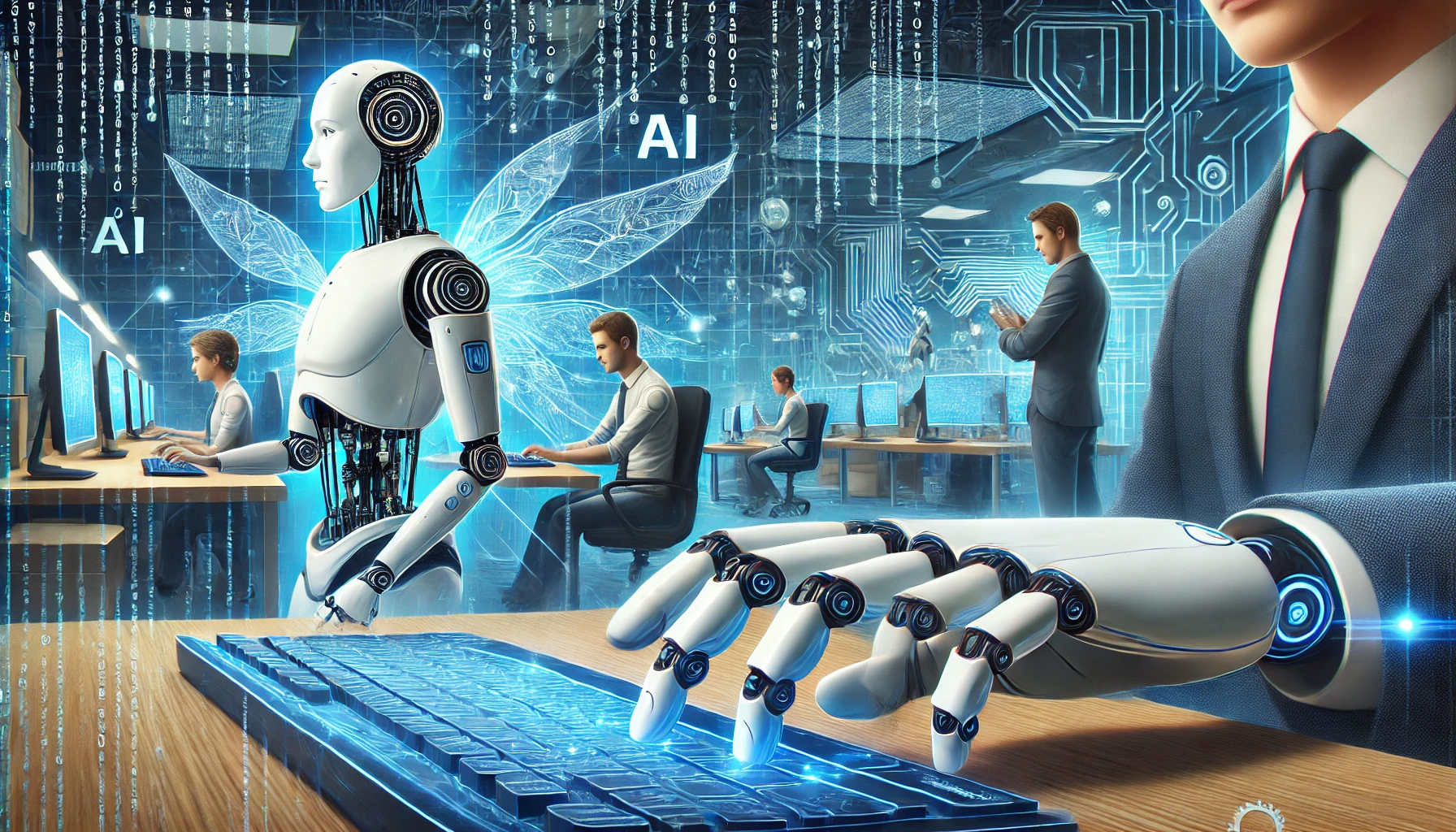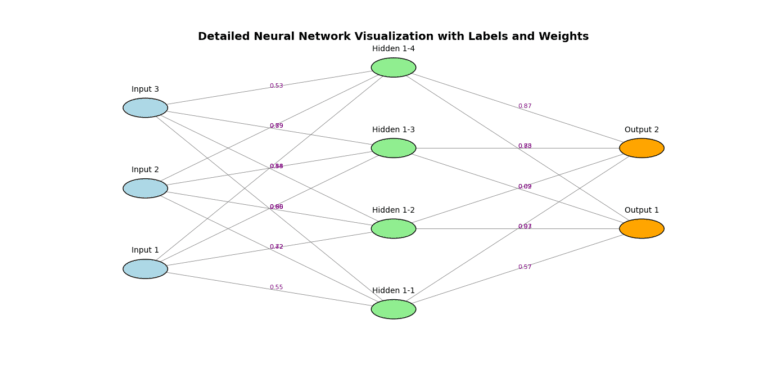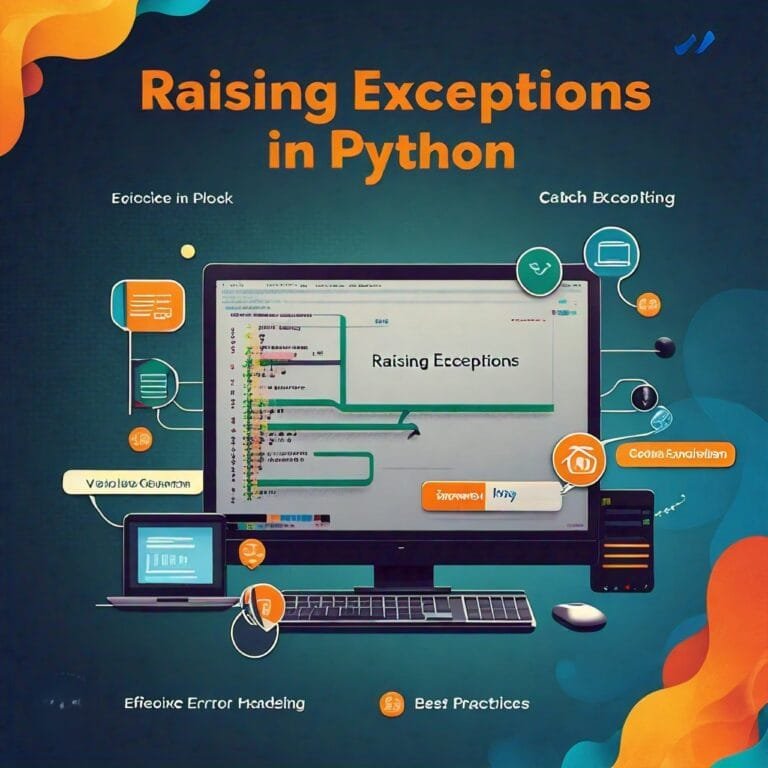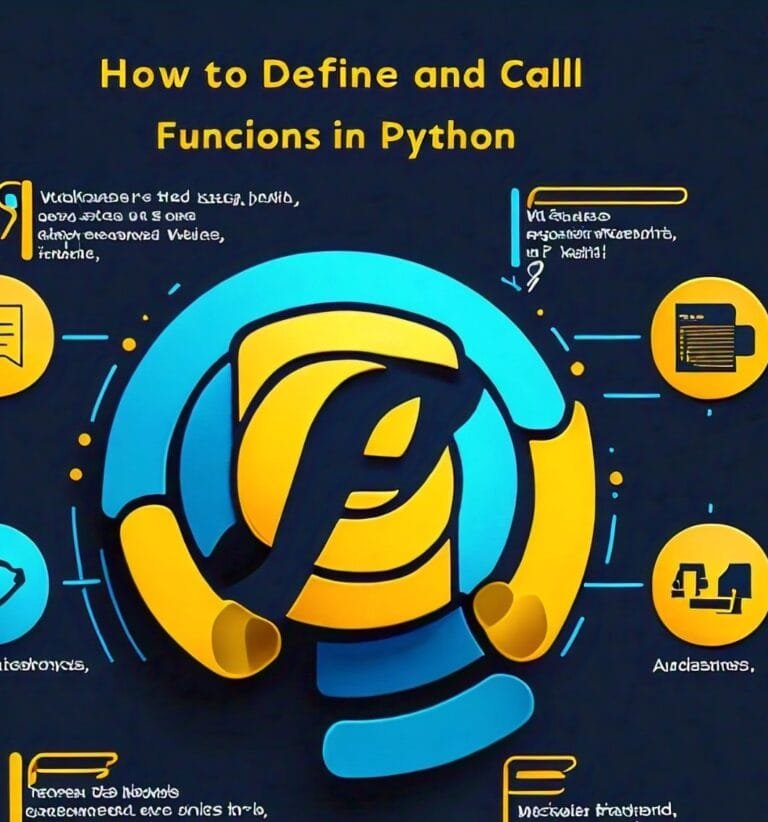AI Revolution: Top Jobs in Danger and How to Stay Ahead
Introduction
AI is creating a ripple effect of changes, fast and furious. A few years past, all writing, designing, you name it, including coding, had to be done by human hands.
And nowadays, AI can do it all in a matter of seconds. White-collar jobs; many of them are, therefore, on thin ice. Very much face it; it’s not the first time technology has done a restructuring job on work. In the future work environment, the adaptations to be made will be more than just losing jobs. Some jobs will go out of existence; others will present new opportunities.
What should one do about it? Do not panic. I’ll tell you which jobs are on the front line of the AI assault, why AI is coming for these jobs, and how to safeguard your future career, above all else. Let’s delve into it.

Jobs Most at Risk Due to AI
Let’s be honest—AI isn’t just changing how we work. It’s taking over certain tasks completely. Some jobs are already shrinking because AI tools can do them cheaper, faster, and without breaks. If your job relies on repetitive tasks, it’s at risk. But don’t worry—there’s always a way to stay ahead. Now let’s see what are all the Jobs taken over by AI.
Data Entry Clerks & Admin Assistants
Data entry clerks and administrative assistants are some of the first jobs at risk due to AI. Why? Because AI tools like Optical Character Recognition (OCR), Robotic Process Automation (RPA), and chatbots are getting really good at handling repetitive tasks.
Consider this: businesses once employed individuals to manage paperwork, set up meetings, and manually enter data. However, AI is now able to automatically update records, interpret documents, and extract information. Without human intervention, a program such as OCR can scan bills and extract crucial information. Data copying and pasting between spreadsheets or computers is one repetitive operation that RPA can perform. What about chatbots? In addition to scheduling appointments and answering emails, they are also managing client inquiries.
What is the risk, then?
Businesses don’t require as many human data entry clerks or administrative assistants because AI can complete these operations more quickly, more affordably, and with fewer errors. Thus, there will be fewer positions in these roles.
How do you stay ahead of the game?
“The good news?” You don’t have to watch AI take over. Instead, become proficient with automated tools. If you know how automated workflows work, you can advance into higher-value roles that involve managing, improving, or even developing them.
You may start right here:
With the help of Microsoft’s Power Automate tool, you can create task automation processes without knowing how to code.
By integrating apps like Slack, Excel, and Gmail, Zapier automates tedious activities.
Python scripting: Learning a little bit of Python will help you automate data processing and handle complicated tasks that AI systems cannot do on their own.
You can take control of automation rather than being replaced. Working with AI in the future requires adaptation, not resistance. Therefore, if you work in administrative or data entry, now is the moment to advance your career and transition into something more future-proof.
Representatives of Customer Support
Let’s now discuss customer service positions and how AI is transforming them.
You already observed how businesses today respond to consumer inquiries with AI chatbots such as ChatGPT, Bard, and Watson AI. AI responds instantly rather than you having to wait for a human. These chatbots are capable of tracking purchases, changing passwords, and responding to often requested queries, among other routine customer service tasks.
What kind of threat is it?
AI chatbots are being used by businesses to replace human customer service representatives since they are available 24/7, can respond instantly, and don’t need to be paid. Instead of hiring large teams, they rely on AI for most interactions and only bring in human agents for complicated issues. This means fewer entry-level support jobs over time. Instead than using large teams for most contacts, they rely on AI and only utilize human agents to solve complicated situations.
How can you remain ahead of the game?
Learn to work with AI rather than against it. This is how:
AI chatbot training is necessary since AI chatbots aren’t flawless. They need to be taught how to reply, have their responses improved, and have them updated in light of actual client feedback. Gaining expertise in AI chatbot training can help you become useful to businesses that use AI-powered customer service.
Customer Experience Strategy: Businesses still require customer experience specialists despite the advent of AI.
Humans Fill the Gap Where AI Can’t
AI is excellent at managing short and easy jobs, but human experience is still crucial for complex challenges like complex technical issues, delicate client concerns, or delicate talks. AI just alters the rules so that we may concentrate on the areas where human judgement, creativity, and empathy are crucial. It is not coming to replace people.
What does this change signify for you, then?
Although customer service is changing, new opportunities are also emerging. So you can work in the areas where still human skill is important.
Accountants & Bookkeepers
You’ve seen how businesses used to handle finances—lots of paperwork, manual calculations, and people tracking every dollar. But now? AI-powered tools like Xero, QuickBooks AI, and Dext are doing most of the work. These tools can automatically track expenses, categorize transactions, generate reports, and even flag errors—things that used to take hours are now done in seconds.
So, what’s the risk?
Well, if AI can handle basic bookkeeping and invoice management, companies don’t need as many bookkeepers. Fewer people are being hired for entry-level accounting jobs because AI can do them cheaper, faster, and without mistakes. That’s a real problem if you’re stuck doing the same old tasks.
But here’s the good news – you can’t do everything well
Of course, it can ruin the numbers, but it does not understand the business strategy, tax laws or financial fraud, as the person does. Here you enter. If you want to be ahead, you have to switch to things that AI can’t completely replace:
AI helped with economic analysis -ia can produce reports, but someone still needs to interpret and interpret companies. If you learn how to use AI tools to analyze financial trends, notice opportunities and advise companies, you will always be in demand.
Forensic accounts – AI can find errors, but it does not investigate fraud as a human can.
So, what should you do now?
If you’re in accounting or bookkeeping, don’t wait for AI to take over—learn how to work with it.
Market study analysts
You know how market research analysts used to work, right? They would spend weeks collecting data, running research, analyzing customer behavior and writing reports to help companies make smart decisions. But now? Ai can do this within seconds. So what is the problem?
So, what’s the problem?
Companies do not need so many people to manually collect and analyze data because AI can be faster, cheaper and more accurate. Tools like Google Trends, IBM Watson, and predictive analytics software can scan huge amounts of data, spot patterns, and even predict future trends. A job that used to take a whole team now takes a few clicks. This means that traditional market research disappears, especially if all you do is analyze basic data.
But here’s the good news—AI doesn’t get everything right.
But here’s the good news – don’t get everything right. Of course, AI can treat numbers and patterns, but it does not understand the psychology of human emotions, cultural changes or decisions. Here you still have an edge.
Well use this operated market research-do not use it to use it. Learn how to work with tools that analyze trends, predict sales and track consumer behavior. Ai can give you numbers, but companies still need people to understand them.
Understand consumer psychology – AI can tell the company that customers prefer a particular product, but that cannot fully explain why. Here you enter. If you can understand how people think about what affects their choices and how emotions are driven by buying decisions, you will be a great advantage.
What does this change signify for you, then?
If you are in market surveys, not just collect data training on how to analyze AI -based insight, understand people’s behavior and make sure AI is used fairly.
Ai changes the future of the work, but it is not related to the takeover – it is about how everything is done.
Customize and you will remain ahead.
Human Resources Recruitment Experts
You know how you hired the job, right? Employees go through many resumes, choosing the best resumption, planning interviews and finding out who is right for the job. It took a lot of time and effort. But now AI tools such as Hirevue, Pymetrics and Eightfold AI are performing most of this work.
So, what’s happening?
Businesses do not need so many recruiters to check or create interviews because AI can make it faster and cheaper.
These tools can scan thousands of resumption, match candidates with work, and even analyze video interviews to assess the personality and the suitability of culture. Some companies even use AI to predict which employees will remain long -term based on previous employment data.
This means that if your job mainly involves filtering resumes, planning interviews or basic candidate that matches you are at risk. Businesses will start cutting down on HR roles or moving them to AI-driven systems. But AI can’t replace everything.
But AI can’t replace everything.
But there is one catch. While AI is quite strong on paper matching skills, it is much less complex than hiring. The aspect involves the perception, personality, and culture fit of people into an organization. An AI will not perceive human emotions, motivations, or the interpersonal dynamics that characterize team building, just as a recruiter does.
For example, AI could justifiably compare candidate A who possesses all required skills for a manager position with Candidate B who lacks some knowledge but has natural leadership abilities. While AI could potentially lean toward candidate A for this role because candidate A fits into all criteria on paper, human recruiters will inevitably make a more appropriate choice.
So, how do you stay ahead?
- Use AI instead of fighting it – Learn to work with AI hiring tools rather than competing with them. If you know how to train, improve, and monitor these tools, there will be great demand for you associating AI with its correct usage.
- Way to go about becoming a branding expert for employers – AI can find people but cannot persuade them to take jobs with a company. Employers need recruiters who highlight a strong employer brand, attract the right talent, and build relationships with candidates.
- Focus on cultural compatibility – The hiring problem isn’t just about ticking boxes on resumes. Companies need people with the expertise to build good teams and a warm environment where new hires can slip in. You cannot expect AI to be capable of doing that.
Bottom line?
AI could replace you if you are only going to be in charge of screening resumes and calling candidates for interviews. But if you deal with things like AI-supported hiring, employer branding, and workplace culture, you will be of way more value than ever. AI is transforming hiring, and yet people still prefer people—and that’s where you come in.

How to Stay Ahead in the AI Revolution
Learn AI and Automation Tools
Step 1: Get to Know the AI Tools in Your Industry
You do not need to be a programmer, but you definitely want to know the AI tools that will matter for your job.
- If you are in data, tools like Power BI, Tableau, and dbt (Data Build Tool) can analyze vast data in a couple of seconds.
- If you are into finance or accounting, you have software like Xero, QuickBooks AI, and Dext for cloud-based, automated bookkeeping and reporting-it does this without you manually cranking through the numbers.
- With Marketing, Jasper AI and HubSpot AI are examples of tools whose functionality spans writing content, predicting customer trends, and automating emails.
- In HR, AI-powered platforms like HireVue and Eightfold AI can screen resumes and match candidates with jobs more quickly than a human could imagine.
Too many people ignore AI; learn how to use it to make your responsibilities much simpler. Employers want people who can do something with those tools and are not afraid of them.
Step 2: Learn AI and Automation—But Make It Simple
You don’t have to go back to school for this: there are tons of online courses that teach you the basics of AI without driving you insane.
AI automation and digital transformation courses can be found on Coursera, Udacity, and LinkedIn Learning.A great starter course is “AI for Beginners” offered by Andrew Ng—this one’s free on Coursera!For automation, consider Python for beginners: the basics will help you automate repeating tasks, getting loads of work done every week.
Step 3: Put Into Practise What You’ve Learnt.
It’s not all about viewing videos but also practise. The best mean of learning AI is through working practicals into your daily work. If you spend most of your time in report making, you have Power BI or Google Looker to automate them. Tired for repetition of the same tasks? Implement Zapier or Power Automate for the AI to assist you instead. Want to know about AI chatbots? If so, try out ChatGPT or Google Bard to see how they can serve you on priorities such as customer support, HR, or content creation.
The Bottom Line?
AI isn’t that big a bad monster coming to take away one’s job. It’s simply a tool and of course, like with anything else in this world-really anyone who knows how to use it will ALWAYS have an advantage. If you start early, you won’t just get to keep your job, you would get the upper hand while the rest linger behind to catch up.And if AI could deal with the boring tasks, then please do so.
Develop Soft Skills AI Can’t Replace

What AI Cannot Do (and Where You Must Invest Attention On)
- Critical Thinking
AI can assess tons of data, but cannot tell you why something is happening. That’s up to you.Let’s have a deeper look here, for instance. For instance, if an AI model predicts that sales will drop in the coming month, what does this actually mean?Weak marketing on your part? Some new campaign drive foiled by the opposition?Seasonable changes, whose interpretation escapes AI. It is incisive thinking human intelligence cannot afford to squander. - Emotional Intelligence
All of those features don’t have much understanding for feelings or moods constructing communication with a user on board.In a customer service center, even if AI responds to the complaint, could it restrain an angry customer? Forgive me, that well exceeds AI since it regards people, tone, emotions, and correct language. - Creativity
AI learns from previous data, thus, it can mix ideas but not create unparalleled things.Nepo—Apple’s iPod: not only good other marketing but ultimate skill in it. The contribution of AI remains a human issue. - Leadership & Communication
While AI injections could be strategies or business and communications, it does not walk people through acting on those strategies.If an organization is faced with a crisis, who would you trust more—a chatbot or someone confident about the very core insights of the organization to restore it, inspire the team, and to make hard decisions? Of course.
How Do You Get Better at This?
- Start asking “Why?”
AI is providing answers, but these must be questioned. Why is this the best? Try different ways - Exercise People Skills
- Try explaining a complicated concept to your friend who knows nothing of the subject.Practice listening more. People are leaning toward talking, but good leaders will listen first.
- Dare to be Different
- Instead of leaning on an AI for ideas, first brainstorm by yourself.Read up about unrelated industries: sometimes the best ideas come from the unlikeliest sources.
The Big Picture
AI is not coming to replace people: it is coming to switch how we do our work. By only putting your focus on learning in the AI tools, you might end up competing against AI. But if you put your focus on what makes you human: your thinking, connecting and creating ability, you shall always be ahead.
Move Toward AI-Related Roles
Why Should You Move Toward AI-Related Jobs?
AI isn’t magic. It doesn’t think on its own—it just follows patterns in data. That means companies need people who understand how to use it properly. And guess what? That could be you.
Right now, businesses are scrambling to figure out AI. Some are blindly trusting it, others are scared of it, and most have no clue how to use it efficiently. If you can be the person who understands AI and knows how to apply it correctly, you become valuable—not replaceable.
What Are Some Good AI-Related Jobs?
Let’s talk about some real career moves that make sense.
- AI Ethics Specialist – AI isn’t always fair. It can be biased or even harmful if not designed properly. Companies need people to make sure AI is ethical and doesn’t cause problems.
- If you care about fairness, law, or psychology, this could be a great fit for you.
- Prompt Engineer – AI doesn’t just “know” things. The way you ask it a question changes the answer you get. Prompt engineers know how to phrase things in a way that gets the best responses from AI.
- If you’re good at writing, problem-solving, and experimenting, this job could be right up your alley.
- AI-Assisted Consultant – Most businesses don’t know how to use AI properly. They need people who can help them integrate AI into their work.
- If you already work in marketing, HR, finance, or any field, you can shift into a role where you help companies use AI without messing things up.
- AI Product Manager – AI products don’t just create themselves. Someone needs to plan them, improve them, and make sure they solve real problems.
- If you like strategy, working with teams, and planning, this job is worth looking into.
How Do You Get Started?
- Learn how AI is changing your field. If you work in marketing, research AI-powered ad tools. If you’re in finance, look into AI-driven trading tools.
- Take some online courses. Platforms like Coursera, Udacity, and LinkedIn Learning have courses on AI in business, AI ethics, and even prompt engineering.
- Try using AI tools yourself. Play around with ChatGPT, Midjourney, or AI automation tools—the more you experiment, the more you’ll understand how AI actually works.
Stay Updated and Keep Learning

Why Staying Updated on AI is a Must
First, let’s talk about why this even matters. Five years ago, AI was nowhere near as powerful as it is today. Back then, most people saw it as a cool tech thing, but nothing more. Now? AI is writing content, answering customer service calls, analyzing financial data, and even making business decisions. And here’s the kicker—it’s only getting faster and smarter.
If you don’t keep up, here’s what could happen:
- You’ll miss out on opportunities. New AI-related jobs are appearing all the time—but if you’re not paying attention, you won’t know about them.
- You’ll fall behind in your industry. More and more companies are using AI to work faster and smarter. If you don’t learn how to use it, someone else will—and they’ll get ahead.
- Your skills could become outdated. AI isn’t just replacing simple tasks; it’s changing how entire industries work. That means your current skill set might not be enough in a few years.
Ever want to stay updated of news but don’t have much time?
Here is a step-by-step guide:
1. Good AI news sources and blogs:
First, I’d always say not to read everything—it’s impossible. Second, try and choose a few sources that give relevant information in an easy and understandable manner:
- EmitechLogic —that is obviously filled with helpful insight on AI.
- Time to keep up-to-date with OpenAI’s Blog—if they’re more or less leading AI research, their updates are always necessary.
- Towards Data Science (Medium)—this covers AI trends that actually make sense.
- Google Alerts—create one for “AI in [industry]” and let AI bring updates directly to you.
2. AI communities (Real talk about it):
Next, don’t just read about AI—actually, make a conversation with the people using it. Here is where they are to be found:
- LinkedIn Groups — Great networks to help each other and understand AI’s effect on real businesses.
- Reddit (r/artificial, r/MachineLearning) —if you want to see a close-up of what AI developers are working on, this is the place.
- GitHub —you can see real AI projects and know what is trending, even if you’re not a coder.
The connections you make in those communities are going to help you keep up with great news.
3. Attend Webinars & AI Conferences (Even the Free Ones)
Another great way to stay updated is by attending AI events—and no, you don’t have to spend a fortune. Many of the best AI webinars are free. Look out for:
- OpenAI Dev Day – Where you hear directly from the experts who build AI tools.
- AI Expo – A great event to see how AI is transforming different industries.
- Webinars from AI Companies – Many AI companies host free online sessions where they explain how their tools work.
Attending these doesn’t just help you learn—it also shows that you’re serious about staying ahead in your field.
4. Experiment with AI Tools (Play Around, Make Mistakes, Learn)
Finally, don’t just read about AI—use it! The best way to learn is by getting hands-on experience. Here’s what you can do:
- Try ChatGPT for content writing and brainstorming.
- Use Midjourney or DALL·E to generate AI-powered images.
- Test Zapier to automate small tasks at work.
- If you’re in marketing, play with AI ad tools. If you’re in finance, look at AI-driven trading platforms.
The more you experiment, the more you’ll understand how AI actually works—and that’s how you stay ahead of the game.
Final Thoughts: AI Won’t Wait for You
At the end of the day, AI isn’t slowing down. The people who pay attention, experiment, and stay curious will always have the advantage. You don’t have to become an AI expert, but you do need to adapt, learn, and use AI to your advantage—before it’s too late.
Conclusion
Let’s be real—AI isn’t taking away all jobs, but it is changing how work gets done. If you’re in a role that relies on routine tasks, AI tools are already stepping in to do the job faster, cheaper, and sometimes better. But here’s the good news: The people who adapt early will have more opportunities than ever before.
The key is not waiting until it’s too late. Start learning AI tools, develop human skills AI can’t replace, and stay updated on where your industry is headed. AI isn’t the enemy—it’s a tool. The question is: Will you use it to your advantage or get left behind?
FAQs
1. Will AI completely replace human jobs?
2. What industries are most at risk due to AI?
3. How can I future-proof my career against AI?
4. Is it too late to start learning AI skills?
External Resources
Here are some external resources to help readers stay ahead in the AI-driven job market:
Learning AI and Automation Tools
- Coursera – AI For Everyone (By Andrew Ng) (Link) – A beginner-friendly course on AI’s impact on jobs.
- LinkedIn Learning – Learning Power Automate (Link) – Helps automate business tasks without coding.
Staying Updated on AI Trends
- Emitech Logic (Link) – AI news, trends, and career tips.








Leave a Reply